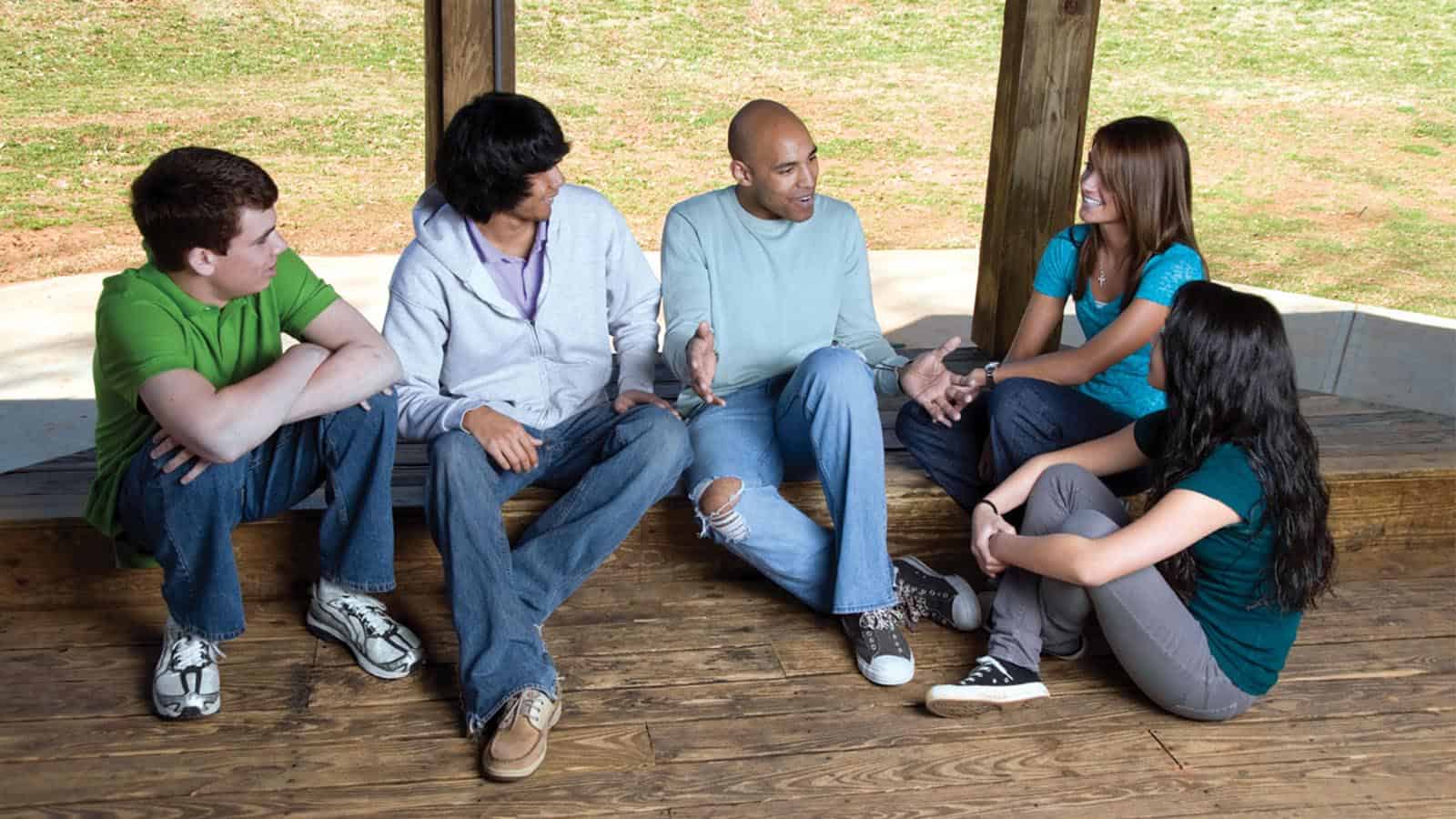We are often asked,”When should we start talking to our kids about opioids?” It’s never too early.

Parents, grandparents, caregivers, relatives, coaches, educators, and family friends can all play a role in opening up that conversation.
If your children are in elementary school or younger, begin by talking openly with your children about a variety of subjects and stay actively engaged in their lives. If they are middle school and high school – it’s not too late. Look for a starting point by asking them if they have heard about opioids and find out what they’ve heard. Then: listen.
- Start early. Begin your discussion of drugs and alcohol when your kids are in elementary school. As they approach middle school, deepen the discussion about drugs and the costs and risks of using them. In particular, ensure they have some understanding of the science of substance use disorder.
- Teach them RX Safety.

- Explain “Why” to Your Kids. Keep medicine in a lock box or locked cabinet. One parent told us,”When (my son) takes it, I explain why he’s taking it and when we stop, I explain why he’s stopping.” This parent also recommends not flavoring prescription medicine so it “tastes good.”
- Ask for transparency. Get your child accustomed to the fact that you have a right, while they are growing up, to know what is going on in their lives, and that they must be transparent about it. Transparency can equal more freedoms.
- Understand they are still growing. The prefrontal cortex, which is where judgment lies, is the last part of the brain to develop. Its development is complete at around 25 years of age. As your child grows, his/her physical maturation will seem faster than their judgment really is evolving. Areas of the brain that are used a great deal grow more completely. Keep talking with them.
- Be proactive on mental health issues. Be aware of any mental health issues with your child, especially related to anxiety or depression. Participate in the diagnosis and treatment; do your own research. Keep in mind that misdiagnosis can happen (e.g., anxiety misdiagnosed as ADHD), and watch very closely for the effect any treatment has on your son or daughter. Note that there is a recent trend of ADHD medications, such as Adderall, being overprescribed. Be very careful with this! Talk to your doctor and get second opinions.
- Know their friends. Pay very close attention to your child’s friends, beginning in elementary school. This was not as important as when we were growing up; it is terribly important now. While the friends your child develops at a very early age may not be drug users, they can instill patterns of thought that can become destructive later on. Get to know them.
- Be on the lookout for any sign of bullying.

- Monitor their social media. Social media can negatively impact self-esteem. Most kids only post on social media the things that are going well in their lives; thus, other kids only see this and reflect it against everything—both good and bad—going on in their own lives. This makes it easier to feel that one’s life is not as satisfying as others. Keep your eye on their online conversations.
- Be realistic & listen to your instincts. Addiction knows no boundaries. It can happen to anyone. Your child could be at risk. Don’t fall for “Not My Kid Syndrome!”
- Seek help. Do not be deterred by any stigma whatsoever; your friends do not have to know if you do not want them to, and this is far more important than what your friends think anyway. There is no shame in help, but there is a lot of benefit in a community of support.
- Arm them with knowledge. Do not fall for “Just Say No” . . . Opioid addiction is far more complex than this. It involves far more subtle layers of choice than other substance use disorders. We prefer to “Just Say Know” – learn all you can about opioids, its effects, and its potential for abuse.
- Demand substance abuse prevention programs. Understand what your child’s school has in the way of drug prevention programs. Be aggressive about this — if they are not robust, demand that they become robust. Consider volunteering your time and building a coalition of parents to make it a reality at your school.
- Lock it up. If you do have prescription opioids at home, keep them locked up, period. Whether taken intentionally or accidentally, it’s simply not safe for off-label use. If you’re no longer need them, find a Safe Disposal site in your community.
- Be ready for peer pressure. Many kids don’t want to start using drugs, but face intense peer pressure to do so as they try to fit in. Consider arming your child with a valid “excuse” for not using them. Role play the conversation with them. Two examples:
- “I have an asthma (or other) condition, and my doctor told me I could be in medical jeopardy if I use drugs or alcohol along with my asthma medication.”
- “I’m trying to keep my options open for entering [military service or academy, sports, law enforcement] and if I got tested, I don’t want to jeopardize them by using drugs.”
- Know the dangers of prescription drugs. Learn more about the potential risks of prescription drugs — Don’t put yourself or your kids at risk.
We prefer to “Just Say Know” – learn all you can about opioids, its effects, and its potential for abuse.Sandy Winnefeld, Co-Founder, SAFE



